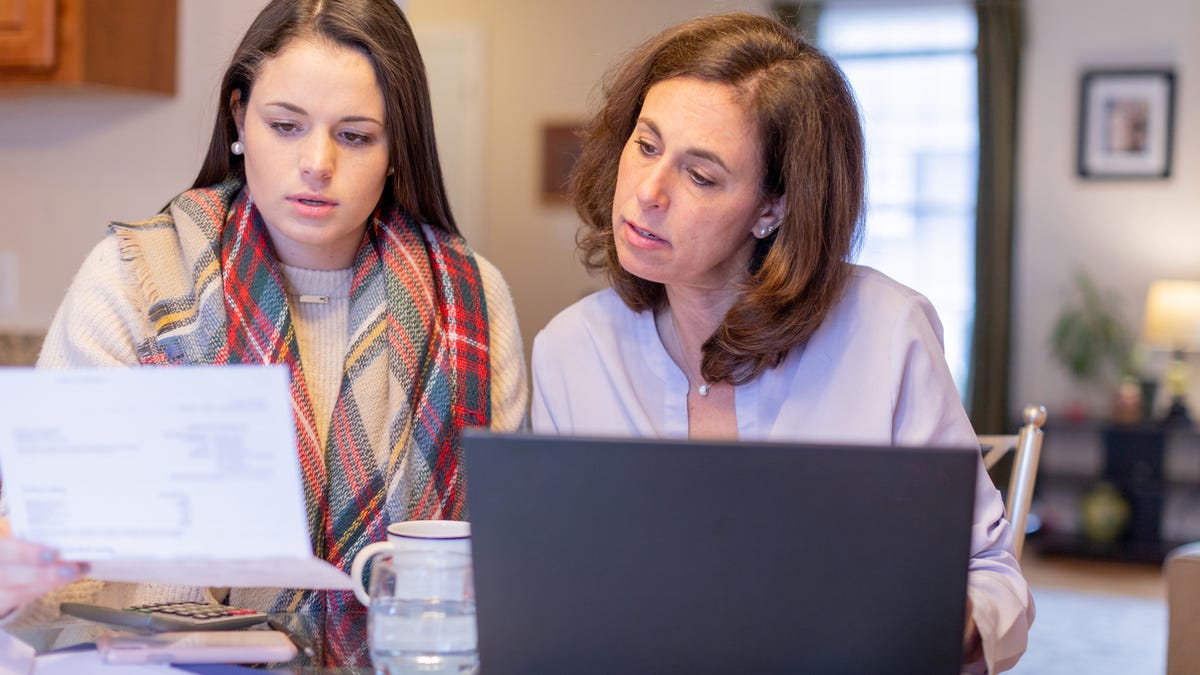
Expert gives advice to parents who want their grown child to move out
An expert provides advice to parents who are trying to convince their grown children to move out on their own.
When Samantha Broxton’s husband was laid off, the couple sat their teenagers down to discuss how the household budget would shift.
Broxton said the layoff came unexpectedly in early 2025, around the time President Donald Trump unleashed tariffs on most U.S. trading partners, recession fears were looming, and companies were slowing their hiring.
Broxton told her teens they would be eating out less, and they might be having more conversations about money.
“Even if both of us find great jobs soon, the world’s changed significantly,” said Broxton, the founder of RaisingSelf.com, a platform dedicated to parenting informaiton and coaching. “We need to rebuild savings, and the kids need to understand that we have to be more intentional.”
The Broxton family’s conversation shows financial stumbling blocks can be turned into teachable moments — something many parents think their kids need more of.
A recent survey of 1,000 parents of children ages 14 to 18, found only 8% think their teenagers are “extremely prepared” to manage their finances in adulthood. That marks a 10-point drop from last year, when 18% reported the same.
Danielle Sherman, CEO and Founder of Wired Research, which conducted the survey on behalf of Jazmarc Services, said while she hoped confidence would increase, the decline made sense in the current U.S. economic climate.
“If they’re feeling shaky about maybe their own preparedness, or their own confidence in being able to navigate this climate, it naturally follows that they feel less certain about how well-prepared their own teens might be,” Sherman said.
Money conversations families are and aren’t having
The survey found that while 82% of parents have talked with their teens about savings, about 7 in 10 said they aren’t confident they’ve taught their kids what else they need to know about money.
About half of survey respondents admitted they hadn’t talked with their teens about sticking to a budget, managing bank accounts, staying out of debt, or building good credit.
A majority also said they have not had meaningful conversations with their teens about selecting insurance, filing tax returns, investing, financial planning, or goal setting.
Still, 98% of parents surveyed said they believe it is their responsibility to teach their kids how to manage finances and 97% think it’s one of the greatest gifts they can give their children.
Talk to kids about money, even if you aren’t rich
Sherman recommends parents explain how their budgeting or lack thereof led them to overdraft their bank accounts or go into debt, and how those decisions will affect them next month.
“That needs to be normalized,” Sherman said. “These are not going to be easy conversations to have, but it could very well be the thing that helps your teen not fall into the same financial cycle.”
Broxton said her teens were a little nervous after she told them about the layoff, but that she’s glad she was transparent about the situation and able to reassure them that their parents were budgeting effectively and looking for new work opportunities.
“Kids are going to notice your change in behavior, your pauses, your ‘no’s,'” Broxton said. “Not talking about it is more likely to cause them to be suspicious and anxious.”
Ways to teach teens about money
Broxton divvies out an allowance to her kids once a month, encouraging them to budget for several weeks at a time and to set some money aside in a savings account.
She’s also watched her children save up for splurge purchases. Some lessons are best learned from first-hand experience, Broxton said.
“That feeling of saving your money, buying a thing, and seeing those savings disappear. They’re like, ‘The money is gone, mom,'” Broxton said. “There is a psychological journey they’re being able to safely experience with their parents without that material risk to their safety and livelihood.”
In addition to teaching the value of a dollar, Jazmarc Services founder Josh Marcus said teenagers’ first part-time jobs present an opportunity to teach them about taxes.
“With my son’s first job, he was all excited to get his first paycheck and he stood there staring at it and I could see the confused look on his face,” Marcus said. “Explain deductions and the numbers, so that they’re understanding the difference between gross pay and what they’re actually pocketing.”
Marcus and Sherman also suggested showing your teenager how much dinner cost when the bill arrives at a restaurant or sharing how long it took you to save up for a family vacation.
“Find the teachable moments,” Sherman said. “Don’t make it a big deal. Make it woven into everyday life. If you can start small with just that, you’re already 10 steps ahead.”
Reach Rachel Barber at rbarber@usatoday.com and follow her on X @rachelbarber_

